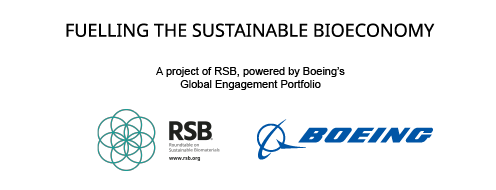RSB, SA Canegrowers Research Points to SAF Potential in South Africa

RSB has been working with the South African Canegrowers Association (SA Canegrowers) to identify opportunities for South African sugarcane ethanol to access local and international biofuels markets, particularly for the production of Sustainable Aviation Fuels (SAF).
The South African sugarcane industry is looking to urgently diversify in order to future-proof an industry made up of commercial farmers and 18 770 small-scale farmers, who combined, employ 65 000 people directly and 270 000 indirectly. Sugar production in South Africa has declined by 25% in recent years, partly due to a flood of cheap imports, and with farmers incurring unsustainable financial losses urgent change is required.
With 12.5% of South Africa’s 19 million ton sugar cane yield produced by small-scale farmers and the whole industry providing vital rural employment, SAF production from South African cane offers real opportunities to develop and diversify the rural economy.
Demand for SAF that offers a minimum of 50% reduction in greenhouse gas (GHG) emissions compared to conventional jet fuel, while also carrying a credible environmental and social sustainability certification, is growing globally — driven by new policy mandates, passenger demand, and industry targets.
Research conducted jointly by RSB and SA Canegrowers (an RSB member) confirms that South African sugarcane — a crop grown in significant quantities in the Northern Eastern part of the country — provides a wholly viable feedstock for the production of SAF. As such, the sugarcane sector in South Africa should strongly consider SAF as a diversification option.
However, South African irrigated sugarcane is still a GHG-intensive crop because of the coal-based energy mix dominant in the country. The diversification of South Africa’s energy mix in favour of renewables has the potential to dramatically strengthen the competitive advantage of local irrigated feedstock — including sugarcane — in the global SAF marketplace. As the South African government looks to strengthen social development and rural economies, the urgent transition from a reliance on coal for energy to renewables is clearer than ever.
RSB is perfectly positioned to support government and industry players who are ready to commit to producing SAF that does not negatively impact food security, water availability, local communities, and ecosystems.
This research project by the RSB and SA Canegrowers was made possible with the support of Boeing.
“We are continually working to find more ways to reduce the impact of flying on our environment, and sustainable fuels are a key piece of this—that’s why we’re proud to support this critical research by the Roundtable on Sustainable Biomaterials and the South African Canegrowers Association,” said Bernard Dunn, vice president of Boeing International and President, Boeing Middle East, Africa and Turkey. “Sustainability is a priority for our company, and Boeing is committed to continuing to support programs like this as we innovate and operate to make the world better for our industry and our communities.”
The most important results of the research are available in an 8-page executive summary. Download it here.
The full-research document, divided in three parts, is available below:
Part I – Market Analysis
Part II – Sustainability Gap Analysis
Part III – GHG emissions

